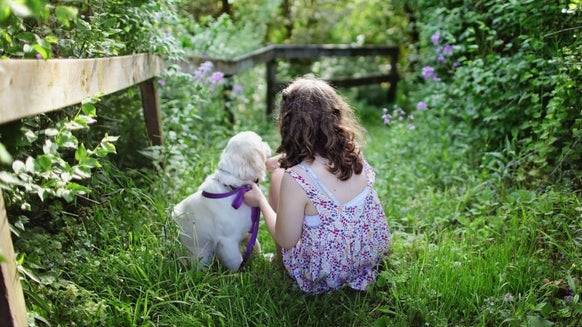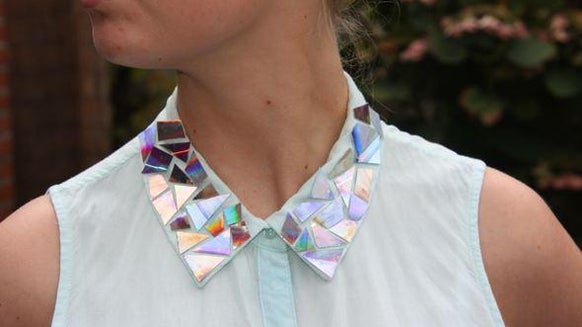Dogs Trust Investigates Puppy Smuggling

Smuggled puppies intended for sale are entering into the UK under the Pet Travel Scheme (PETS) which requires puppies to be at least 15 weeks old, microchipped, vaccinated against rabies, treated for tapeworm and to have a pet passport. This scheme is in place for existing pet owners, not those looking to sell imported puppies in the UK - puppy smugglers are abusing this system.
The Puppy Smuggling Trade
Underage puppies are traveling into the UK under fake passports from European countries such as Lithuania, Hungary and Romania. The minimum age for a puppy to have the rabies vaccine is usually 12 weeks, and they are not permitted to travel until 21 days after their jab. In the UK, younger puppies make bigger profits, so in order to get them imported into the UK at a younger age, the rabies vaccine documentation for most smuggled puppies is forged.
This is not only putting the health of these puppies at great risk, but also puts the health of dogs belonging to existing UK dog owners at great risk too. Not only that, to get younger puppies into UK to be sold, puppies are often taken away from their mothers far too young. This not only adds more risk to their health, but along with poor traveling conditions, the trip over the UK border tends to be a nerve racking ordeal for the young animals.

Investigations Carried out by Dogs Trust
Back in November 2014, Dogs Trust released a puppy smuggling report that revealed how easy it is for puppies to be smuggled into the UK with fake passports and no vaccinations. In December 2014, the government made changes to the PETS scheme to help clamp down on this law breaking trade.
Despite changes to the scheme, continued reports lead Dogs Trust to believe there was no positive movement towards elminating the trade, so in March this year they started carrying more uncover investigatory work. Their findings showed that the puppy smuggling trade continues, with many unsuspecting pet owners going through heartbreak as puppies experience health problems, and go into quarantine. As well as the health risks involved and the associated veterinary costs, UK pet owners may also be buying what they believe to be a pedigree puppy, when they are not.
What is Preloved Doing?
We do not allow the sale or rehoming of pets outside of the UK, or those recently brought over to the UK. This is to ensure this channel cannot be exploited to import puppies for sale. As part of our dedicated partnership with the Pets Advertising Advisory Group (PAAG), we work closely with leading UK animal welfare charities to ensure our advert moderation processes highlight adverts with welfare concerns, including those showing evidence of imported puppies for sale.
Any suspect adverts advertising imported puppies for sale are removed from our site immediately, with any related account members banned from using our site. In addition to these measures, we have regulations in place for members selling multiple litters of puppies, with breeders requiring to provide proof of their breeding license in order to use the site. You can read our pet advertising guidelines in more detail here.
We manually check 100% of our animal adverts, however if you come across an advert, or a seller, that you have concerns with, please let us know immediately by contacting us.
What Can You Do?
When looking for a dog to join your family,
First of all, ask yourself, "can I give a happy and healthy home"? Dogs can live over 12 years, so by giving a dog a home you are committing to care for the dog for a long period of time. On average, dogs can cost around £21,000 in their lifetime, so you will not only be committing your time to care for your dog, but it will cost you to keep them happy and healthy.
Once you have done your research and you are confident you can give a dog a loving home, before searching for the perfect puppy, consider rehoming a dog in need of a new home. With thousands of dogs of all ages looking for forever homes in the UK, you needn't buy a new puppy to find the perfect loving companion to join your family. As well as many family dogs looking for a second chance, we have numerous pet welfare charities using Preloved to list dogs in need of a home.
However, if you have your heart set on buying a new puppy, then there are measures you can take to buy responsibly. If you are looking for a specific pedigree or crossbreed, then it is important you research the breed to ensure it fits your lifestyle. The Kennel Club have given some useful advice on what to consider when buying a pedigree or crossbreed dog.

Once you have done your research and the day comes for you to visit a puppy for sale, please keep the below in mind to avoid buying a puppy from an irresponsible breeder:
Can you see the puppies with their mother? Ensure the mother has a good temperament, and if you are not allowed to see them with their mother, take that a as warning sign. Puppies should not leave their mother until they are at least 8 weeks old so be wary of anyone selling underage puppies and always ask their age. A good way to judge their age is by asking whether they have been weaned - puppies should be fully weaned at 7 weeks old. Check the mother's age and how many litters she has had. She should be over a year old, but not too old. It is against the law to breed more than six times in bitch's lifetime, and if the breeder breeds frequently, they require a breeding license. Have the puppies been wormed? A puppy should be wormed at 2 weeks old, and then repeatedly after that every 2 weeks by the breeder, then by yourself once you give the puppy a home. Have they been vaccinated, if so when? Between 6-9 weeks, puppies require their first jabs, and then another set at 10-12 weeks. Do the puppies look healthy? Have they got clean eyes, ears and bottoms? Don't buy an unhealthy puppy because you feel sorry for it. What should I feed my puppy? Good breeders will want to give you the information you need to ensure the puppy can be introduced onto any new food gradually. Most good breeders will provide a couple days worth of food and a diet sheet. Can I return the puppy if they have health problems? Take your new puppy for a health check at the vets within 48 hours of giving them a home. A good breeder will accept puppies back if you are unable to keep them. Are the puppies KC registered? KC registered puppies will have a registration certificate and free health insurance for the first few weeks.
If you have any concerns over a breeder you visit, do not buy the puppy. Report any suspect breeders to your local authority or Trading Standards office, and notify the RSPCA if you have witnessed obvious signs of neglect or cruelty.
For further advice on finding your forever friend, please visit our pet welfare pages.








